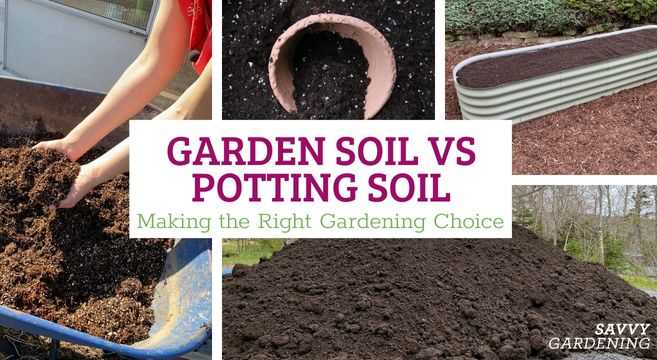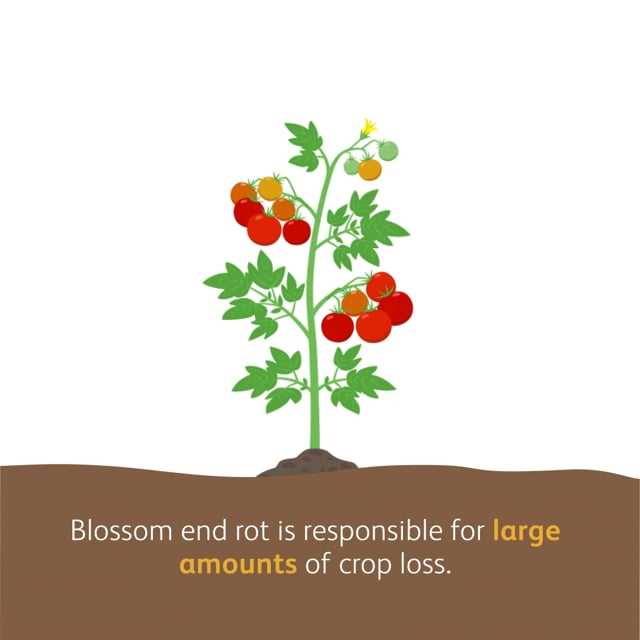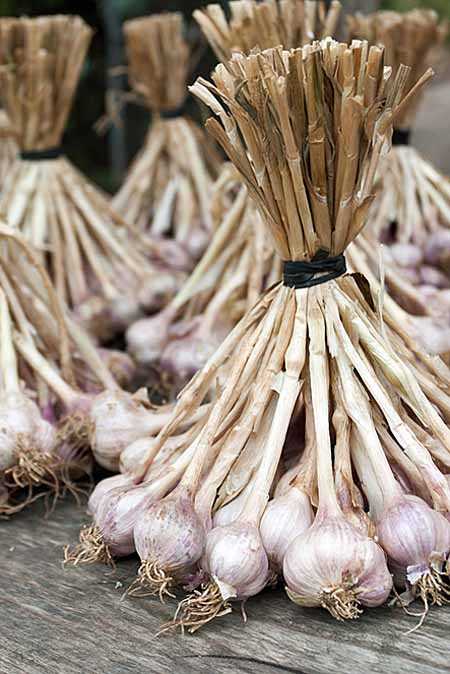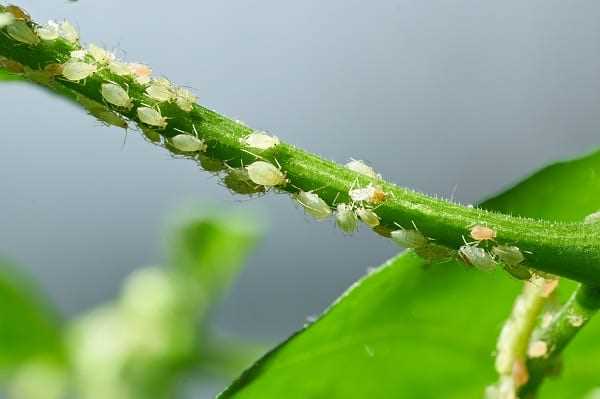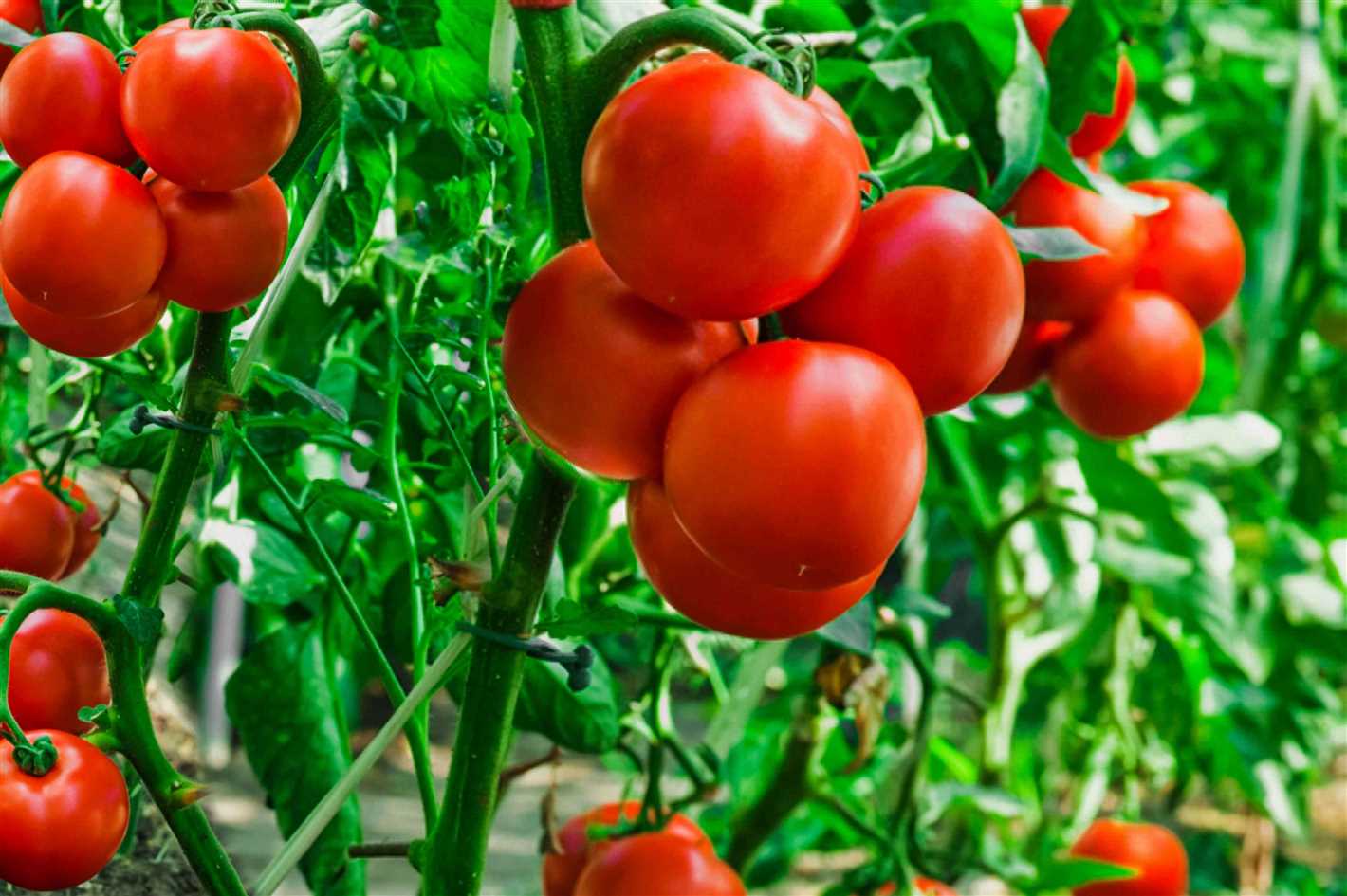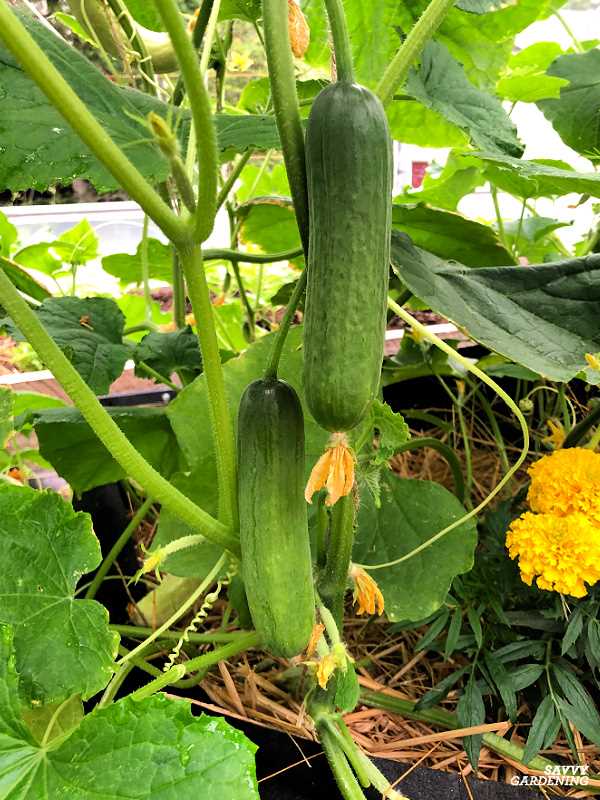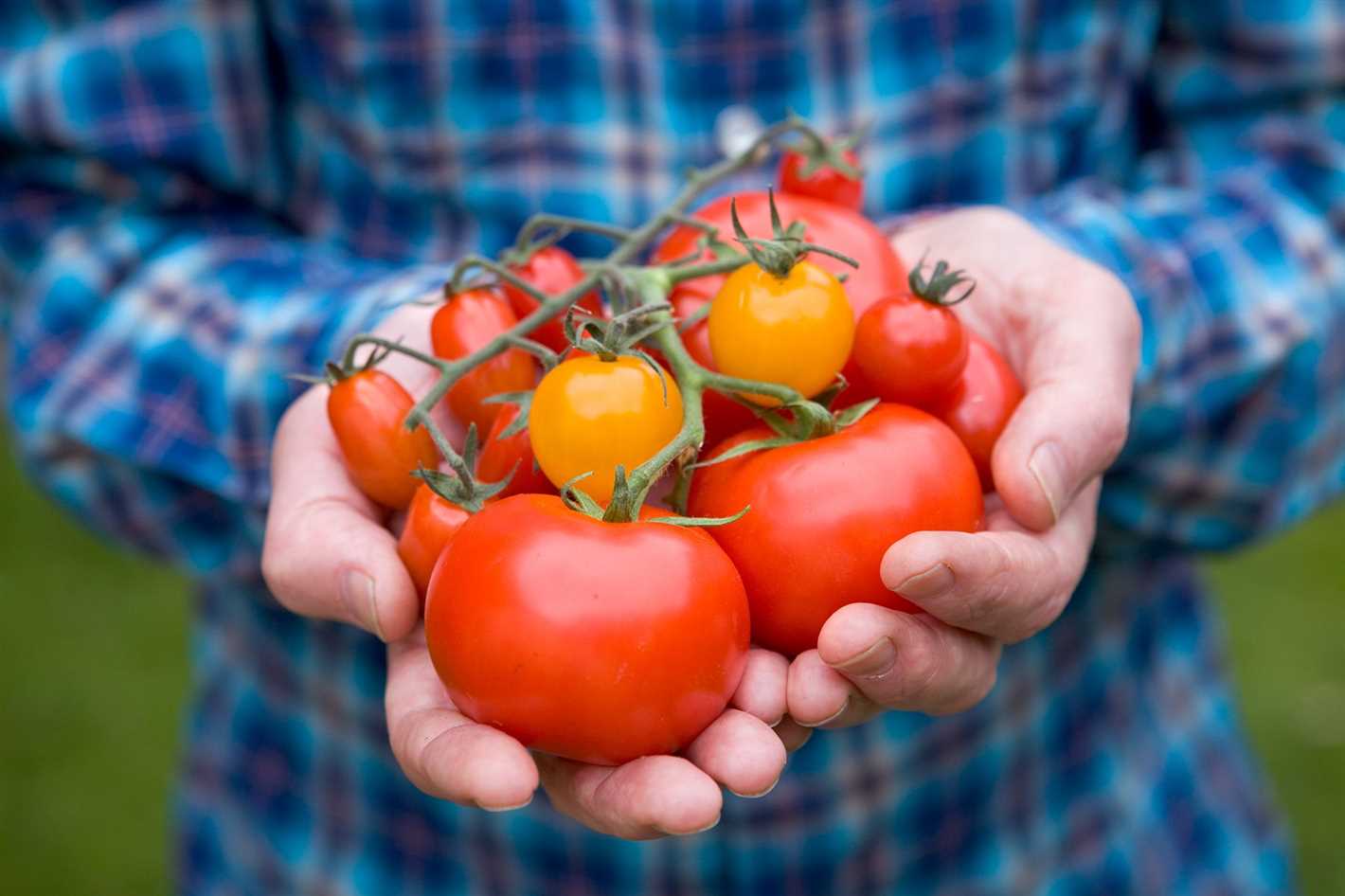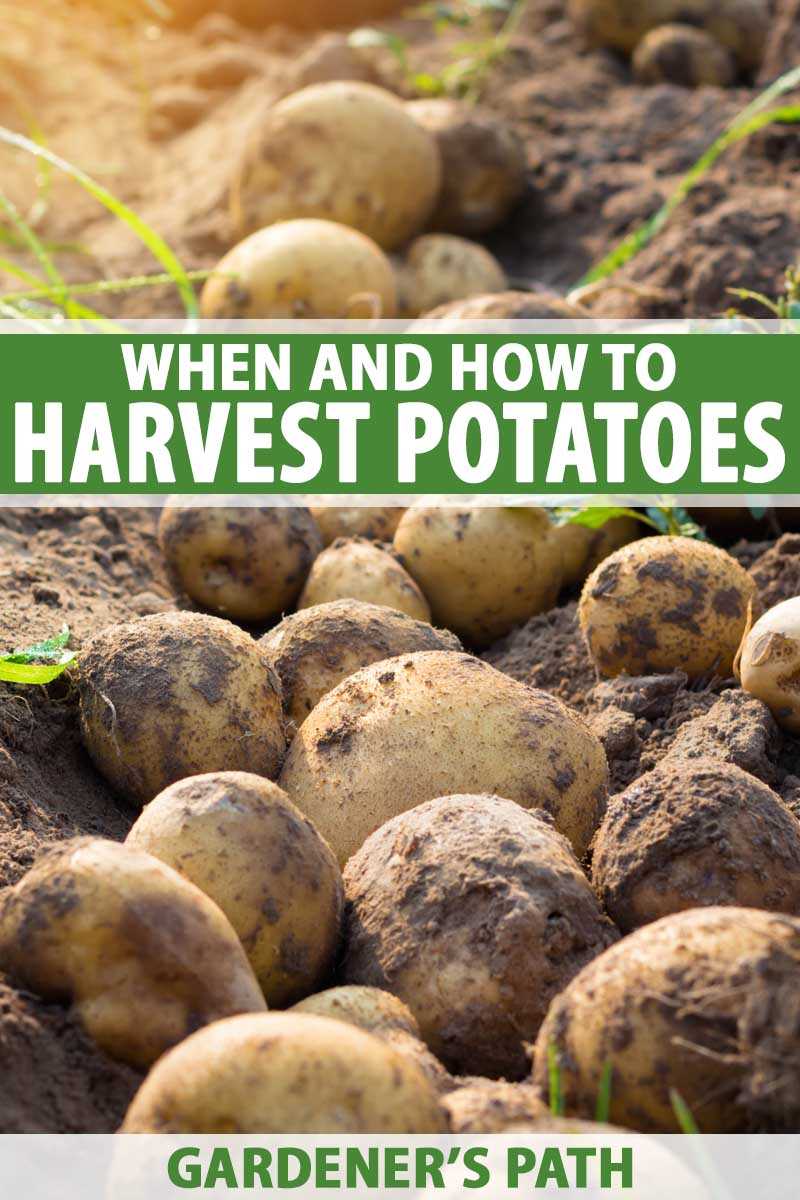- Natural Fertiliser for Seedlings
- 1. Compost
- 2. Manure
- 3. Worm castings
- 4. Fish emulsion
- 5. Seaweed extract
- 6. Bone meal
- Benefits of Using Natural Fertiliser
- Types of Natural Fertiliser 1. Compost Compost is one of the most common types of natural fertiliser. It is made by decomposing organic matter such as kitchen scraps, leaves, grass clippings, and manure. Compost provides a rich source of nutrients, improves soil structure, and promotes healthy plant growth. 2. Manure Manure is another popular natural fertiliser. It can come from various animals, such as cows, horses, or chickens. Manure is rich in nutrients like nitrogen, phosphorus, and potassium that are essential for plant growth. It is important to compost manure before using it as a fertiliser to eliminate any harmful bacteria. 3. Bone Meal Bone meal is a natural fertiliser made from ground-up bones. It is high in phosphorus and calcium, which are vital for root development and overall plant health. Bone meal is often used as a fertiliser for flowering plants, vegetable gardens, and fruit trees. 4. Fish emulsion Fish emulsion is a liquid fertiliser made from fish waste or whole fish. It is rich in nutrients like nitrogen, phosphorus, and potassium, as well as trace minerals. Fish emulsion is often used as a foliar spray or added to irrigation water to provide a quick nutrient boost to plants. 5. Blood meal Blood meal is a natural fertiliser made from dried blood, usually from cattle or pigs. It is high in nitrogen, which promotes lush green growth in plants. Blood meal is often used as a slow-release fertiliser for nitrogen-loving plants such as leafy greens and corn. 6. Seaweed Seaweed is a natural fertiliser that is rich in trace elements, minerals, and growth hormones. It can be used in various forms, such as liquid extracts, dried flakes, or powdered kelp. Seaweed fertiliser improves soil structure, enhances root development, and increases plant resistance to diseases and pests. Comparison of Natural Fertilisers Fertiliser Nutrients Application Compost Various nutrients Mixed into soil or used as a top dressing Manure Nitrogen, phosphorus, potassium Mixed into soil or used as a top dressing Bone Meal Phosphorus, calcium Mixed into soil or applied to planting holes Fish Emulsion Nitrogen, phosphorus, potassium, trace minerals Foliar spray or added to irrigation water Blood Meal Nitrogen Mixed into soil or applied as a top dressing Seaweed Trace elements, minerals, growth hormones Foliar spray or mixed into soil Best Natural Fertiliser for Seedlings If you’re looking for a way to give your seedlings a boost without relying on chemical fertilisers, natural alternatives can be a great option. Here are some of the best natural fertilisers for seedlings: 1. Compost Compost is one of the best natural fertilisers for seedlings. It is made from organic materials such as kitchen scraps, yard waste, and leaves, which are broken down into nutrient-rich soil amendments. Compost supplies a wide range of essential nutrients and improves soil structure, promoting healthy root development in seedlings. 2. Worm Castings Worm castings, also known as vermicompost, are another excellent natural fertiliser for seedlings. They are the waste products of earthworms and are rich in beneficial microorganisms, nutrients, and plant growth hormones. Worm castings provide a slow-release source of nutrients to seedlings and help improve soil moisture retention. 3. Fish Emulsion Fish emulsion is a liquid fertiliser made from fermented fish parts. It is a great natural fertiliser for seedlings due to its high nitrogen content. Nitrogen is crucial for promoting leafy growth in young plants. Fish emulsion also contains beneficial trace elements and can be easily absorbed by seedlings. 4. Seaweed Extract Seaweed extract is derived from seaweed and is an excellent source of trace elements, growth-promoting hormones, and amino acids. It is available in liquid form and can be used as a foliar spray or applied directly to the soil. Seaweed extract enhances seedling growth, improves overall plant health, and increases resistance to stress. 5. GreenManure Green manure refers to cover crops that are grown and then tilled into the soil before planting seedlings. Examples of green manure crops include legumes like clover or vetch. These plants help suppress weed growth, enrich the soil with organic matter, and increase nutrient availability for seedlings. When using natural fertilisers for seedlings, it’s important to follow the instructions provided by the manufacturer. Additionally, it’s recommended to perform a soil test to ensure the appropriate nutrient balance for your specific seedlings. Natural Fertiliser for Grapes Grapes are a popular fruit that can be grown in a variety of climates. Whether you have a small backyard vineyard or just a couple of grapevines in your garden, using a natural fertiliser can help to promote healthy growth and enhance fruit production. Here are a few natural fertiliser options for your grapevines: 1. Compost Compost is a rich source of nutrients and organic matter that can be used to nourish grapevines. It improves soil fertility, increases water retention, and provides essential nutrients such as nitrogen, phosphorus, and potassium. Apply compost around the base of the grapevines, avoiding direct contact with the vines to prevent rotting. 2. Manure Well-aged animal manure, such as cow or horse manure, is another natural fertiliser option for grapevines. It is high in nitrogen and other essential nutrients that promote healthy growth. Apply a layer of manure around the base of the grapevines, taking care not to pile it up against the vines. 3. Organic Fertilisers There are various organic fertilisers available specifically formulated for grapevines. These fertilisers usually contain a balanced mix of nutrients that are essential for grapevine growth, such as nitrogen, phosphorus, and potassium. Follow the manufacturer’s instructions for application rates and timings. 4. Cover Crops Planting cover crops between the grapevines can provide additional nutrients for the soil. Legumes like clover or vetch are excellent choices as they fix nitrogen in the soil, which can be beneficial for grapevine growth. Once the cover crops have grown, they can be cut and left as a mulch to enrich the soil. 5. Fish Emulsion Fish emulsion is a liquid fertiliser made from fish waste. It is a good source of nitrogen and other trace elements that promote healthy grapevine growth. Dilute the fish emulsion according to the manufacturer’s instructions and apply it to the soil around the grapevines. 6. Seaweed Extract Seaweed extract is a natural fertiliser that contains a range of nutrients and growth-promoting substances. It helps improve plant health, enhance root development, and increase tolerance to environmental stresses. Dilute the seaweed extract according to the manufacturer’s instructions and apply it to the grapevines. Remember to always follow the recommended application rates and timings for any natural fertilisers you use on your grapevines. Regular fertilisation, along with adequate water and sunlight, will help your grapevines grow strong and produce abundant, flavorful fruits. Importance of Fertilising Grapevines Grapevines, like any other plants, require certain nutrients to grow and produce healthy fruits. Fertilising grapevines is crucial for maintaining their overall health and productivity. Here are some reasons why fertilising grapevines is important: 1. Nutrient Deficiency Prevention Fertilisers help provide grapevines with essential nutrients that are necessary for their growth and development. These nutrients, such as nitrogen, phosphorus, and potassium, play a vital role in the vine’s ability to produce flowers, fruits, and foliage. Without adequate fertilisation, grapevines may suffer from nutrient deficiencies, leading to stunted growth, low fruit quality, and decreased yield. 2. Enhanced Growth and Development Fertilisers supply grapevines with the necessary nutrients to support their overall growth and development. By providing an extra boost to their nutrient intake, fertilisers encourage healthy root development, vigorous foliage growth, and strong root-to-shoot ratio. This leads to stronger vines, improved photosynthesis, and increased energy reserves, all of which contribute to better fruit production and vine health. 3. Increased Disease Resistance A well-fertilised grapevine is more likely to have an enhanced immune system, making it better equipped to resist diseases and pests. Proper fertilisation can improve the overall health and resilience of grapevines, enabling them to defend against common grapevine diseases like powdery mildew, downy mildew, and grey mold. Additionally, a healthy vine is less susceptible to pest infestations, reducing the need for chemical interventions. 4. Consistent and Quality Fruit Production Fertilising grapevines ensures a consistent and high-quality fruit production. Nutrient-rich soil and appropriate fertilisation practices help maintain the balance between vegetative growth and fruit production. Adequate nutrients enable the vine to produce an optimal number of clusters with high sugar content, good acidity levels, and desirable flavors. Regular fertilisation also promotes the development of healthy and disease-free fruit, resulting in better yields and improved grape quality. 5. Sustainable Vineyard Management Incorporating fertilisation practices into vineyard management contributes to long-term sustainability. By replenishing nutrients in the soil, fertilisation helps maintain soil fertility and prevent depletion. This sustainable approach not only benefits the current vineyard yields but also ensures the health and productivity of grapevines for years to come. In conclusion, fertilising grapevines is essential for their growth, development, disease resistance, and fruit production. By providing the necessary nutrients, fertilisers contribute to the overall health and sustainability of grapevines, leading to consistent and high-quality harvests. Types of Natural Fertiliser for Grapes Grapes are a popular fruit that can be grown in a variety of climates, and they require proper nutrition to thrive. Natural fertilisers can provide the necessary nutrients for grape plants, without the use of synthetic chemicals. Here are some types of natural fertilisers that are particularly beneficial for grapes: 1. Compost Compost is a nutrient-rich soil amendment that is made from decomposed organic matter. It provides a wide range of essential nutrients, including nitrogen, phosphorus, and potassium. Adding compost to the soil around grape plants can improve soil structure, enhance water retention, and encourage beneficial microorganisms. 2. Manure Well-rotted animal manure, such as cow or horse manure, can be an excellent natural fertiliser for grapevines. Manure is a good source of nitrogen, which is crucial for healthy plant growth. It also adds organic matter to the soil, improving its fertility and water-holding capacity. 3. Bone Meal Bone meal is an organic fertiliser made from ground-up animal bones. It is a rich source of phosphorus, which is essential for flower and fruit production. Adding bone meal to the soil around grapevines can promote robust root development, improve flowering, and increase grape yields. 4. Fish Emulsion Fish emulsion is a liquid organic fertiliser that is made from fermented fish. It is a concentrated source of nutrients, particularly nitrogen and trace elements. Applying fish emulsion to grape plants can provide a quick boost of nutrients, stimulating healthy growth and improving overall plant health. 5. Natural Liquid Fertilisers There are various natural liquid fertilisers available in the market that are specifically formulated for grapevines. These fertilisers typically contain a mix of organic nutrients, minerals, and beneficial bacteria. They can be easily applied by foliar spraying or through irrigation systems, ensuring that the plants receive a balanced supply of essential nutrients. When using natural fertilisers for grapes, it is important to follow the recommended application rates and timing to avoid overfeeding or nutrient deficiencies. Additionally, it is always a good idea to conduct a soil test to assess the nutrient levels and pH of the soil before applying any fertilisers. This will help tailor the fertilisation program to the specific needs of the grape plants, ensuring optimal growth and fruit production. Tips for Applying Natural Fertiliser to Grapevines Grapevines require regular fertilisation to ensure healthy growth and a bountiful harvest. Using natural fertilisers is a great way to provide essential nutrients to your grapevines without relying on synthetic chemicals. Here are some tips for applying natural fertilisers to your grapevines: 1. Choose the right natural fertiliser There are many natural fertilisers available, so it’s important to choose one that is suitable for grapevines. Look for a fertiliser that is rich in organic matter, such as compost or well-rotted manure. These fertilisers provide a wide range of nutrients that grapevines need to thrive. 2. Apply fertiliser in the spring Grapevines benefit from a spring application of fertiliser to promote healthy growth and development. Apply the natural fertiliser around the base of the grapevines, being careful not to get it on the leaves or fruit. This will allow the roots to absorb the nutrients directly. 3. Follow recommended dosage When applying natural fertiliser to grapevines, it’s important to follow the recommended dosage. Over-fertilisation can lead to excessive vegetative growth and reduced fruit production. Consult the packaging or consult a gardening expert for the appropriate amount to use. 4. Water thoroughly after application Once the natural fertiliser has been applied, water the grapevines thoroughly to help the nutrients penetrate the soil and reach the roots. This can be done using a garden hose or by allowing rainwater to naturally irrigate the plants. 5. Apply mulch Mulching around grapevines after fertilisation can help retain moisture and suppress weeds. Organic mulch, such as wood chips or straw, can also decompose over time, adding additional nutrients to the soil. 6. Monitor plant health After applying natural fertiliser, keep a close eye on the health of your grapevines. Look for signs of over-fertilisation, such as excessive foliage growth or yellowing leaves. Adjust your fertilisation routine accordingly to ensure the grapevines receive the right amount of nutrients. By following these tips, you can effectively apply natural fertiliser to your grapevines and promote healthy growth and abundant fruit production. Natural Fertiliser for Indoor Plants Indoor plants require proper care and nutrition to thrive and stay healthy. Using natural fertilisers is a great way to provide essential nutrients to your indoor plants without the use of harmful chemicals. Here are some natural fertilisers that you can use to nourish your indoor plants: 1. Compost Compost is an excellent natural fertiliser for indoor plants. It is made from organic matter such as kitchen scraps, yard waste, and leaves. Compost is rich in nutrients and beneficial microorganisms that enhance the soil’s fertility. You can mix compost with potting soil or sprinkle it on top of the soil around the base of your indoor plants. 2. Organic Liquid Fertiliser Organic liquid fertilisers are specially formulated to provide essential nutrients to indoor plants. They are made from natural sources such as seaweed, fish emulsion, and bone meal. These fertilisers are easy to apply and quickly absorbed by the plants. You can dilute the liquid fertiliser in water and use it to water your indoor plants once a month. 3. Epsom Salt Epsom salt is a natural source of magnesium and sulfur, which are essential minerals for plant growth. You can dissolve Epsom salt in water and use it to water your indoor plants once every few months. This will help improve the nutrient uptake of your plants and promote healthy growth. 4. Banana Peels Banana peels are a great source of potassium and other nutrients that are beneficial for indoor plants. You can cut up banana peels into small pieces and bury them in the soil around the base of your plants. As the peels decompose, they will release nutrients into the soil, providing a slow-release fertiliser for your indoor plants. 5. Coffee Grounds Used coffee grounds are rich in nitrogen, potassium, and other minerals that indoor plants need for healthy growth. You can sprinkle coffee grounds around the base of your plants or mix them with potting soil. However, be careful not to use too much coffee grounds as it can make the soil too acidic. 6. Green Tea Green tea is not only beneficial for your health but also for your indoor plants. You can use green tea as a natural fertiliser by brewing a weak solution and using it to water your plants. The nutrients in green tea help promote healthy root development and improve the overall vitality of your indoor plants. Using natural fertilisers is a sustainable and eco-friendly way to provide nutrients to your indoor plants. Experiment with these natural fertilisers and adjust their application according to the needs of your plants. Remember to always read the instructions and follow the recommended dosage for each type of natural fertiliser you use. Benefits of Using Natural Fertiliser for Indoor Plants Using natural fertiliser for indoor plants can provide several benefits for their growth and overall health. Here are some advantages of using natural fertilisers: Environmentally friendly: Natural fertilisers are made from organic materials such as animal manure, compost, and plant matter. They do not contain synthetic chemicals or harmful substances, making them safe for the environment. Nutrient-rich: Natural fertilisers contain essential nutrients that are beneficial for plant growth, including nitrogen, phosphorus, and potassium. These nutrients are released slowly and are readily absorbed by the plants, promoting healthy foliage and strong root development. Improves soil structure: Natural fertilisers help to improve the structure of the soil by increasing its ability to hold water and nutrients. This enhances the soil’s fertility and promotes better plant growth. Promotes biodiversity: Using natural fertilisers encourages the growth of beneficial microorganisms in the soil, such as earthworms and beneficial bacteria. These microorganisms help to break down organic matter and release nutrients that are essential for plant growth. Long-lasting effects: Natural fertilisers release nutrients slowly over time, providing a steady supply of nourishment to the plants. This reduces the risk of over-fertilisation and ensures that the plants receive a consistent and balanced supply of nutrients. In conclusion, using natural fertilisers for indoor plants offers numerous benefits including environmental friendliness, nutrient enrichment, soil structure improvement, promotion of biodiversity, and long-lasting effects. It is a sustainable and effective way to support the growth and health of your indoor plants. “Question-Answer” What is natural fertiliser and why is it important for seedlings, grapes and indoor plants? Natural fertiliser is a type of fertiliser derived from organic sources such as compost, animal manure, or plant matter. It is important for seedlings, grapes, and indoor plants because it provides essential nutrients that plants need for healthy growth, promotes soil fertility, and improves overall plant health. How can I make natural fertiliser for my seedlings? You can make natural fertiliser for your seedlings by composting kitchen scraps, such as fruit and vegetable peels, coffee grounds, and eggshells. Mix these organic materials with yard waste, like grass clippings and leaves, and allow it to decompose over time. The resulting compost can be used as a natural fertiliser for your seedlings. What are the benefits of using natural fertiliser for grapes? Using natural fertiliser for grapes has several benefits. It improves soil quality and fertility, providing essential nutrients for grape vines to thrive. Natural fertilisers also enhance the flavor and quality of grapes, promoting better yields. They are also environmentally friendly and do not contribute to water pollution or harm beneficial organisms in the soil. Can I use natural fertiliser for indoor plants? Yes, you can use natural fertiliser for indoor plants. It is a safe and effective way to provide nutrients to your indoor plants without the use of synthetic chemicals. Natural fertilisers help promote growth and overall plant health, making them a great option for indoor gardening. How often should I apply natural fertiliser to my seedlings? The frequency of applying natural fertiliser to seedlings depends on the specific needs of the plants and the type of natural fertiliser being used. Generally, it is recommended to apply a small amount of natural fertiliser once a month while the seedlings are actively growing. However, it is important to follow the instructions on the fertiliser packaging or consult a gardening expert for specific guidelines. Can natural fertiliser help prevent indoor plants from wilting? Yes, natural fertiliser can help prevent indoor plants from wilting. The nutrients provided by natural fertilisers promote healthy plant growth, strengthen the plant’s immune system, and improve water absorption capabilities. This helps the plants stay hydrated and reduces the chances of wilting. “Video” Cheap & Best Organic Fertiliser for plant growth,flower&fruit enhancement #gardening #Fertilisers
- 1. Compost Compost is one of the most common types of natural fertiliser. It is made by decomposing organic matter such as kitchen scraps, leaves, grass clippings, and manure. Compost provides a rich source of nutrients, improves soil structure, and promotes healthy plant growth. 2. Manure Manure is another popular natural fertiliser. It can come from various animals, such as cows, horses, or chickens. Manure is rich in nutrients like nitrogen, phosphorus, and potassium that are essential for plant growth. It is important to compost manure before using it as a fertiliser to eliminate any harmful bacteria. 3. Bone Meal Bone meal is a natural fertiliser made from ground-up bones. It is high in phosphorus and calcium, which are vital for root development and overall plant health. Bone meal is often used as a fertiliser for flowering plants, vegetable gardens, and fruit trees. 4. Fish emulsion Fish emulsion is a liquid fertiliser made from fish waste or whole fish. It is rich in nutrients like nitrogen, phosphorus, and potassium, as well as trace minerals. Fish emulsion is often used as a foliar spray or added to irrigation water to provide a quick nutrient boost to plants. 5. Blood meal Blood meal is a natural fertiliser made from dried blood, usually from cattle or pigs. It is high in nitrogen, which promotes lush green growth in plants. Blood meal is often used as a slow-release fertiliser for nitrogen-loving plants such as leafy greens and corn. 6. Seaweed Seaweed is a natural fertiliser that is rich in trace elements, minerals, and growth hormones. It can be used in various forms, such as liquid extracts, dried flakes, or powdered kelp. Seaweed fertiliser improves soil structure, enhances root development, and increases plant resistance to diseases and pests. Comparison of Natural Fertilisers Fertiliser Nutrients Application Compost Various nutrients Mixed into soil or used as a top dressing Manure Nitrogen, phosphorus, potassium Mixed into soil or used as a top dressing Bone Meal Phosphorus, calcium Mixed into soil or applied to planting holes Fish Emulsion Nitrogen, phosphorus, potassium, trace minerals Foliar spray or added to irrigation water Blood Meal Nitrogen Mixed into soil or applied as a top dressing Seaweed Trace elements, minerals, growth hormones Foliar spray or mixed into soil Best Natural Fertiliser for Seedlings If you’re looking for a way to give your seedlings a boost without relying on chemical fertilisers, natural alternatives can be a great option. Here are some of the best natural fertilisers for seedlings: 1. Compost Compost is one of the best natural fertilisers for seedlings. It is made from organic materials such as kitchen scraps, yard waste, and leaves, which are broken down into nutrient-rich soil amendments. Compost supplies a wide range of essential nutrients and improves soil structure, promoting healthy root development in seedlings. 2. Worm Castings Worm castings, also known as vermicompost, are another excellent natural fertiliser for seedlings. They are the waste products of earthworms and are rich in beneficial microorganisms, nutrients, and plant growth hormones. Worm castings provide a slow-release source of nutrients to seedlings and help improve soil moisture retention. 3. Fish Emulsion Fish emulsion is a liquid fertiliser made from fermented fish parts. It is a great natural fertiliser for seedlings due to its high nitrogen content. Nitrogen is crucial for promoting leafy growth in young plants. Fish emulsion also contains beneficial trace elements and can be easily absorbed by seedlings. 4. Seaweed Extract Seaweed extract is derived from seaweed and is an excellent source of trace elements, growth-promoting hormones, and amino acids. It is available in liquid form and can be used as a foliar spray or applied directly to the soil. Seaweed extract enhances seedling growth, improves overall plant health, and increases resistance to stress. 5. GreenManure Green manure refers to cover crops that are grown and then tilled into the soil before planting seedlings. Examples of green manure crops include legumes like clover or vetch. These plants help suppress weed growth, enrich the soil with organic matter, and increase nutrient availability for seedlings. When using natural fertilisers for seedlings, it’s important to follow the instructions provided by the manufacturer. Additionally, it’s recommended to perform a soil test to ensure the appropriate nutrient balance for your specific seedlings. Natural Fertiliser for Grapes Grapes are a popular fruit that can be grown in a variety of climates. Whether you have a small backyard vineyard or just a couple of grapevines in your garden, using a natural fertiliser can help to promote healthy growth and enhance fruit production. Here are a few natural fertiliser options for your grapevines: 1. Compost Compost is a rich source of nutrients and organic matter that can be used to nourish grapevines. It improves soil fertility, increases water retention, and provides essential nutrients such as nitrogen, phosphorus, and potassium. Apply compost around the base of the grapevines, avoiding direct contact with the vines to prevent rotting. 2. Manure Well-aged animal manure, such as cow or horse manure, is another natural fertiliser option for grapevines. It is high in nitrogen and other essential nutrients that promote healthy growth. Apply a layer of manure around the base of the grapevines, taking care not to pile it up against the vines. 3. Organic Fertilisers There are various organic fertilisers available specifically formulated for grapevines. These fertilisers usually contain a balanced mix of nutrients that are essential for grapevine growth, such as nitrogen, phosphorus, and potassium. Follow the manufacturer’s instructions for application rates and timings. 4. Cover Crops Planting cover crops between the grapevines can provide additional nutrients for the soil. Legumes like clover or vetch are excellent choices as they fix nitrogen in the soil, which can be beneficial for grapevine growth. Once the cover crops have grown, they can be cut and left as a mulch to enrich the soil. 5. Fish Emulsion Fish emulsion is a liquid fertiliser made from fish waste. It is a good source of nitrogen and other trace elements that promote healthy grapevine growth. Dilute the fish emulsion according to the manufacturer’s instructions and apply it to the soil around the grapevines. 6. Seaweed Extract Seaweed extract is a natural fertiliser that contains a range of nutrients and growth-promoting substances. It helps improve plant health, enhance root development, and increase tolerance to environmental stresses. Dilute the seaweed extract according to the manufacturer’s instructions and apply it to the grapevines. Remember to always follow the recommended application rates and timings for any natural fertilisers you use on your grapevines. Regular fertilisation, along with adequate water and sunlight, will help your grapevines grow strong and produce abundant, flavorful fruits. Importance of Fertilising Grapevines Grapevines, like any other plants, require certain nutrients to grow and produce healthy fruits. Fertilising grapevines is crucial for maintaining their overall health and productivity. Here are some reasons why fertilising grapevines is important: 1. Nutrient Deficiency Prevention Fertilisers help provide grapevines with essential nutrients that are necessary for their growth and development. These nutrients, such as nitrogen, phosphorus, and potassium, play a vital role in the vine’s ability to produce flowers, fruits, and foliage. Without adequate fertilisation, grapevines may suffer from nutrient deficiencies, leading to stunted growth, low fruit quality, and decreased yield. 2. Enhanced Growth and Development Fertilisers supply grapevines with the necessary nutrients to support their overall growth and development. By providing an extra boost to their nutrient intake, fertilisers encourage healthy root development, vigorous foliage growth, and strong root-to-shoot ratio. This leads to stronger vines, improved photosynthesis, and increased energy reserves, all of which contribute to better fruit production and vine health. 3. Increased Disease Resistance A well-fertilised grapevine is more likely to have an enhanced immune system, making it better equipped to resist diseases and pests. Proper fertilisation can improve the overall health and resilience of grapevines, enabling them to defend against common grapevine diseases like powdery mildew, downy mildew, and grey mold. Additionally, a healthy vine is less susceptible to pest infestations, reducing the need for chemical interventions. 4. Consistent and Quality Fruit Production Fertilising grapevines ensures a consistent and high-quality fruit production. Nutrient-rich soil and appropriate fertilisation practices help maintain the balance between vegetative growth and fruit production. Adequate nutrients enable the vine to produce an optimal number of clusters with high sugar content, good acidity levels, and desirable flavors. Regular fertilisation also promotes the development of healthy and disease-free fruit, resulting in better yields and improved grape quality. 5. Sustainable Vineyard Management Incorporating fertilisation practices into vineyard management contributes to long-term sustainability. By replenishing nutrients in the soil, fertilisation helps maintain soil fertility and prevent depletion. This sustainable approach not only benefits the current vineyard yields but also ensures the health and productivity of grapevines for years to come. In conclusion, fertilising grapevines is essential for their growth, development, disease resistance, and fruit production. By providing the necessary nutrients, fertilisers contribute to the overall health and sustainability of grapevines, leading to consistent and high-quality harvests. Types of Natural Fertiliser for Grapes Grapes are a popular fruit that can be grown in a variety of climates, and they require proper nutrition to thrive. Natural fertilisers can provide the necessary nutrients for grape plants, without the use of synthetic chemicals. Here are some types of natural fertilisers that are particularly beneficial for grapes: 1. Compost Compost is a nutrient-rich soil amendment that is made from decomposed organic matter. It provides a wide range of essential nutrients, including nitrogen, phosphorus, and potassium. Adding compost to the soil around grape plants can improve soil structure, enhance water retention, and encourage beneficial microorganisms. 2. Manure Well-rotted animal manure, such as cow or horse manure, can be an excellent natural fertiliser for grapevines. Manure is a good source of nitrogen, which is crucial for healthy plant growth. It also adds organic matter to the soil, improving its fertility and water-holding capacity. 3. Bone Meal Bone meal is an organic fertiliser made from ground-up animal bones. It is a rich source of phosphorus, which is essential for flower and fruit production. Adding bone meal to the soil around grapevines can promote robust root development, improve flowering, and increase grape yields. 4. Fish Emulsion Fish emulsion is a liquid organic fertiliser that is made from fermented fish. It is a concentrated source of nutrients, particularly nitrogen and trace elements. Applying fish emulsion to grape plants can provide a quick boost of nutrients, stimulating healthy growth and improving overall plant health. 5. Natural Liquid Fertilisers There are various natural liquid fertilisers available in the market that are specifically formulated for grapevines. These fertilisers typically contain a mix of organic nutrients, minerals, and beneficial bacteria. They can be easily applied by foliar spraying or through irrigation systems, ensuring that the plants receive a balanced supply of essential nutrients. When using natural fertilisers for grapes, it is important to follow the recommended application rates and timing to avoid overfeeding or nutrient deficiencies. Additionally, it is always a good idea to conduct a soil test to assess the nutrient levels and pH of the soil before applying any fertilisers. This will help tailor the fertilisation program to the specific needs of the grape plants, ensuring optimal growth and fruit production. Tips for Applying Natural Fertiliser to Grapevines Grapevines require regular fertilisation to ensure healthy growth and a bountiful harvest. Using natural fertilisers is a great way to provide essential nutrients to your grapevines without relying on synthetic chemicals. Here are some tips for applying natural fertilisers to your grapevines: 1. Choose the right natural fertiliser There are many natural fertilisers available, so it’s important to choose one that is suitable for grapevines. Look for a fertiliser that is rich in organic matter, such as compost or well-rotted manure. These fertilisers provide a wide range of nutrients that grapevines need to thrive. 2. Apply fertiliser in the spring Grapevines benefit from a spring application of fertiliser to promote healthy growth and development. Apply the natural fertiliser around the base of the grapevines, being careful not to get it on the leaves or fruit. This will allow the roots to absorb the nutrients directly. 3. Follow recommended dosage When applying natural fertiliser to grapevines, it’s important to follow the recommended dosage. Over-fertilisation can lead to excessive vegetative growth and reduced fruit production. Consult the packaging or consult a gardening expert for the appropriate amount to use. 4. Water thoroughly after application Once the natural fertiliser has been applied, water the grapevines thoroughly to help the nutrients penetrate the soil and reach the roots. This can be done using a garden hose or by allowing rainwater to naturally irrigate the plants. 5. Apply mulch Mulching around grapevines after fertilisation can help retain moisture and suppress weeds. Organic mulch, such as wood chips or straw, can also decompose over time, adding additional nutrients to the soil. 6. Monitor plant health After applying natural fertiliser, keep a close eye on the health of your grapevines. Look for signs of over-fertilisation, such as excessive foliage growth or yellowing leaves. Adjust your fertilisation routine accordingly to ensure the grapevines receive the right amount of nutrients. By following these tips, you can effectively apply natural fertiliser to your grapevines and promote healthy growth and abundant fruit production. Natural Fertiliser for Indoor Plants Indoor plants require proper care and nutrition to thrive and stay healthy. Using natural fertilisers is a great way to provide essential nutrients to your indoor plants without the use of harmful chemicals. Here are some natural fertilisers that you can use to nourish your indoor plants: 1. Compost Compost is an excellent natural fertiliser for indoor plants. It is made from organic matter such as kitchen scraps, yard waste, and leaves. Compost is rich in nutrients and beneficial microorganisms that enhance the soil’s fertility. You can mix compost with potting soil or sprinkle it on top of the soil around the base of your indoor plants. 2. Organic Liquid Fertiliser Organic liquid fertilisers are specially formulated to provide essential nutrients to indoor plants. They are made from natural sources such as seaweed, fish emulsion, and bone meal. These fertilisers are easy to apply and quickly absorbed by the plants. You can dilute the liquid fertiliser in water and use it to water your indoor plants once a month. 3. Epsom Salt Epsom salt is a natural source of magnesium and sulfur, which are essential minerals for plant growth. You can dissolve Epsom salt in water and use it to water your indoor plants once every few months. This will help improve the nutrient uptake of your plants and promote healthy growth. 4. Banana Peels Banana peels are a great source of potassium and other nutrients that are beneficial for indoor plants. You can cut up banana peels into small pieces and bury them in the soil around the base of your plants. As the peels decompose, they will release nutrients into the soil, providing a slow-release fertiliser for your indoor plants. 5. Coffee Grounds Used coffee grounds are rich in nitrogen, potassium, and other minerals that indoor plants need for healthy growth. You can sprinkle coffee grounds around the base of your plants or mix them with potting soil. However, be careful not to use too much coffee grounds as it can make the soil too acidic. 6. Green Tea Green tea is not only beneficial for your health but also for your indoor plants. You can use green tea as a natural fertiliser by brewing a weak solution and using it to water your plants. The nutrients in green tea help promote healthy root development and improve the overall vitality of your indoor plants. Using natural fertilisers is a sustainable and eco-friendly way to provide nutrients to your indoor plants. Experiment with these natural fertilisers and adjust their application according to the needs of your plants. Remember to always read the instructions and follow the recommended dosage for each type of natural fertiliser you use. Benefits of Using Natural Fertiliser for Indoor Plants Using natural fertiliser for indoor plants can provide several benefits for their growth and overall health. Here are some advantages of using natural fertilisers: Environmentally friendly: Natural fertilisers are made from organic materials such as animal manure, compost, and plant matter. They do not contain synthetic chemicals or harmful substances, making them safe for the environment. Nutrient-rich: Natural fertilisers contain essential nutrients that are beneficial for plant growth, including nitrogen, phosphorus, and potassium. These nutrients are released slowly and are readily absorbed by the plants, promoting healthy foliage and strong root development. Improves soil structure: Natural fertilisers help to improve the structure of the soil by increasing its ability to hold water and nutrients. This enhances the soil’s fertility and promotes better plant growth. Promotes biodiversity: Using natural fertilisers encourages the growth of beneficial microorganisms in the soil, such as earthworms and beneficial bacteria. These microorganisms help to break down organic matter and release nutrients that are essential for plant growth. Long-lasting effects: Natural fertilisers release nutrients slowly over time, providing a steady supply of nourishment to the plants. This reduces the risk of over-fertilisation and ensures that the plants receive a consistent and balanced supply of nutrients. In conclusion, using natural fertilisers for indoor plants offers numerous benefits including environmental friendliness, nutrient enrichment, soil structure improvement, promotion of biodiversity, and long-lasting effects. It is a sustainable and effective way to support the growth and health of your indoor plants. “Question-Answer” What is natural fertiliser and why is it important for seedlings, grapes and indoor plants? Natural fertiliser is a type of fertiliser derived from organic sources such as compost, animal manure, or plant matter. It is important for seedlings, grapes, and indoor plants because it provides essential nutrients that plants need for healthy growth, promotes soil fertility, and improves overall plant health. How can I make natural fertiliser for my seedlings? You can make natural fertiliser for your seedlings by composting kitchen scraps, such as fruit and vegetable peels, coffee grounds, and eggshells. Mix these organic materials with yard waste, like grass clippings and leaves, and allow it to decompose over time. The resulting compost can be used as a natural fertiliser for your seedlings. What are the benefits of using natural fertiliser for grapes? Using natural fertiliser for grapes has several benefits. It improves soil quality and fertility, providing essential nutrients for grape vines to thrive. Natural fertilisers also enhance the flavor and quality of grapes, promoting better yields. They are also environmentally friendly and do not contribute to water pollution or harm beneficial organisms in the soil. Can I use natural fertiliser for indoor plants? Yes, you can use natural fertiliser for indoor plants. It is a safe and effective way to provide nutrients to your indoor plants without the use of synthetic chemicals. Natural fertilisers help promote growth and overall plant health, making them a great option for indoor gardening. How often should I apply natural fertiliser to my seedlings? The frequency of applying natural fertiliser to seedlings depends on the specific needs of the plants and the type of natural fertiliser being used. Generally, it is recommended to apply a small amount of natural fertiliser once a month while the seedlings are actively growing. However, it is important to follow the instructions on the fertiliser packaging or consult a gardening expert for specific guidelines. Can natural fertiliser help prevent indoor plants from wilting? Yes, natural fertiliser can help prevent indoor plants from wilting. The nutrients provided by natural fertilisers promote healthy plant growth, strengthen the plant’s immune system, and improve water absorption capabilities. This helps the plants stay hydrated and reduces the chances of wilting. “Video” Cheap & Best Organic Fertiliser for plant growth,flower&fruit enhancement #gardening #Fertilisers
- 1. Compost
- 2. Manure
- 3. Bone Meal
- 4. Fish emulsion
- 5. Blood meal
- 6. Seaweed
- Best Natural Fertiliser for Seedlings
- 1. Compost
- 2. Worm Castings
- 3. Fish Emulsion
- 4. Seaweed Extract
- 5. GreenManure
- Natural Fertiliser for Grapes
- 1. Compost
- 2. Manure
- 3. Organic Fertilisers
- 4. Cover Crops
- 5. Fish Emulsion
- 6. Seaweed Extract
- Importance of Fertilising Grapevines
- 1. Nutrient Deficiency Prevention
- 2. Enhanced Growth and Development
- 3. Increased Disease Resistance
- 4. Consistent and Quality Fruit Production
- 5. Sustainable Vineyard Management
- Types of Natural Fertiliser for Grapes
- 1. Compost
- 2. Manure
- 3. Bone Meal
- 4. Fish Emulsion
- 5. Natural Liquid Fertilisers
- Tips for Applying Natural Fertiliser to Grapevines
- 1. Choose the right natural fertiliser
- 2. Apply fertiliser in the spring
- 3. Follow recommended dosage
- 4. Water thoroughly after application
- 5. Apply mulch
- 6. Monitor plant health
- Natural Fertiliser for Indoor Plants
- 1. Compost
- 2. Organic Liquid Fertiliser
- 3. Epsom Salt
- 4. Banana Peels
- 5. Coffee Grounds
- 6. Green Tea
- Benefits of Using Natural Fertiliser for Indoor Plants
- “Question-Answer”
- What is natural fertiliser and why is it important for seedlings, grapes and indoor plants?
- How can I make natural fertiliser for my seedlings?
- What are the benefits of using natural fertiliser for grapes?
- Can I use natural fertiliser for indoor plants?
- How often should I apply natural fertiliser to my seedlings?
- Can natural fertiliser help prevent indoor plants from wilting?
- “Video” Cheap & Best Organic Fertiliser for plant growth,flower&fruit enhancement #gardening #Fertilisers
Growing healthy and vibrant plants is every gardener’s dream. And while there are plenty of synthetic fertilisers available in the market, opting for a natural approach is not only better for the environment but also for the overall health of your plants.
GreenThumb’s natural fertiliser is a perfect solution for seedlings, grapes, and indoor plants. Made from organic ingredients, it provides a balanced blend of essential nutrients that plants need to thrive. The unique formula ensures that your plants receive the right amount of nitrogen, phosphorus, and potassium, promoting strong root development, robust growth, and abundant flowering.
What sets GreenThumb’s natural fertiliser apart is its ability to enhance the natural defence mechanisms of plants. The organic components stimulate the production of beneficial microorganisms in the soil, which help fight off pests and diseases. This not only reduces the need for chemical pesticides but also creates a healthier environment for your plants to grow.
With GreenThumb’s natural fertiliser, you can be confident that you are feeding your plants with the best nutrients nature has to offer. Whether you are starting seedlings, nurturing grapes, or maintaining indoor plants, this fertiliser will ensure that your plants thrive and flourish.
So why settle for synthetic fertilisers that harm the environment and potentially harm your plants? GreenThumb’s natural fertiliser is the smarter choice for both your garden and the planet.
Natural Fertiliser for Seedlings
When it comes to growing healthy and strong seedlings, natural fertilisers can play a crucial role. By providing essential nutrients to young plants, natural fertilisers promote their growth and development. Here are some effective natural fertilisers that can be used for seedlings:
1. Compost
Compost is a rich source of organic matter and nutrients, making it an excellent natural fertiliser for seedlings. It improves soil structure, retains moisture, and provides essential nutrients like nitrogen, phosphorus, and potassium. You can use homemade compost or purchase it from a garden center.
2. Manure
Animal manure is another natural fertiliser that can be used for seedlings. It is a good source of nutrients, including nitrogen, phosphorus, and potassium. However, it’s important to use well-aged manure to avoid burning the seedlings. Mix the manure with the soil or use it as a side dressing.
3. Worm castings
Worm castings, also known as vermicompost, are rich in nutrients and beneficial microorganisms. They provide a slow-release form of nutrients to the seedlings, promoting healthy growth. You can mix worm castings with potting soil or use them as a top dressing around the seedlings.
4. Fish emulsion
Fish emulsion is a liquid fertiliser made from fish waste. It is a good source of nitrogen and other trace minerals. Fish emulsion can be diluted with water and applied to the seedlings every two weeks during the growing season.
5. Seaweed extract
Seaweed extract is obtained from seaweed and is rich in trace minerals, growth hormones, and amino acids. It promotes strong root development, enhances nutrient uptake, and improves overall plant health. Dilute the seaweed extract with water and use it as a foliar spray or a root drench for seedlings.
6. Bone meal
Bone meal is a natural fertiliser made from ground animal bones. It is high in phosphorus, which is essential for root development and flower production. Mix bone meal with the soil before planting the seedlings or use it as a top dressing around the plants.
When using natural fertilisers for seedlings, it’s important to follow the recommended application rates and avoid over-fertilising. Remember to water the seedlings regularly and provide them with adequate sunlight for optimal growth. With the right natural fertilisers, you can give your seedlings the nutrients they need to thrive.
Benefits of Using Natural Fertiliser
- Natural fertilisers are environmentally friendly and do not harm the ecosystem. They are made from organic materials, such as animal manure, compost, and plant extracts.
- Using natural fertilisers helps improve soil fertility and structure. They provide essential nutrients to the soil, such as nitrogen, phosphorus, and potassium, which are necessary for plant growth and development.
- Natural fertilisers promote the growth of beneficial microorganisms in the soil. These microorganisms help break down organic matter, release nutrients, and increase soil fertility.
- Natural fertilisers are safe to use around children, pets, and wildlife. Unlike synthetic fertilisers, they do not contain harmful chemicals that can leach into the soil and water sources.
- Using natural fertilisers can enhance the flavor, color, and nutritional value of fruits and vegetables. These fertilisers provide plants with the necessary nutrients to produce high-quality and nutritious crops.
- Natural fertilisers are cost-effective in the long run. While they may require more effort to prepare or purchase, they contribute to the overall health of the soil and reduce the need for synthetic fertilisers and pesticides.
Overall, using natural fertilisers has numerous benefits for both plants and the environment. They support sustainable gardening practices, improve soil fertility, and promote the growth of healthy and nutritious plants.
Types of Natural Fertiliser1. Compost
1. Compost
Compost is one of the most common types of natural fertiliser. It is made by decomposing organic matter such as kitchen scraps, leaves, grass clippings, and manure. Compost provides a rich source of nutrients, improves soil structure, and promotes healthy plant growth.
2. Manure
Manure is another popular natural fertiliser. It can come from various animals, such as cows, horses, or chickens. Manure is rich in nutrients like nitrogen, phosphorus, and potassium that are essential for plant growth. It is important to compost manure before using it as a fertiliser to eliminate any harmful bacteria.
3. Bone Meal
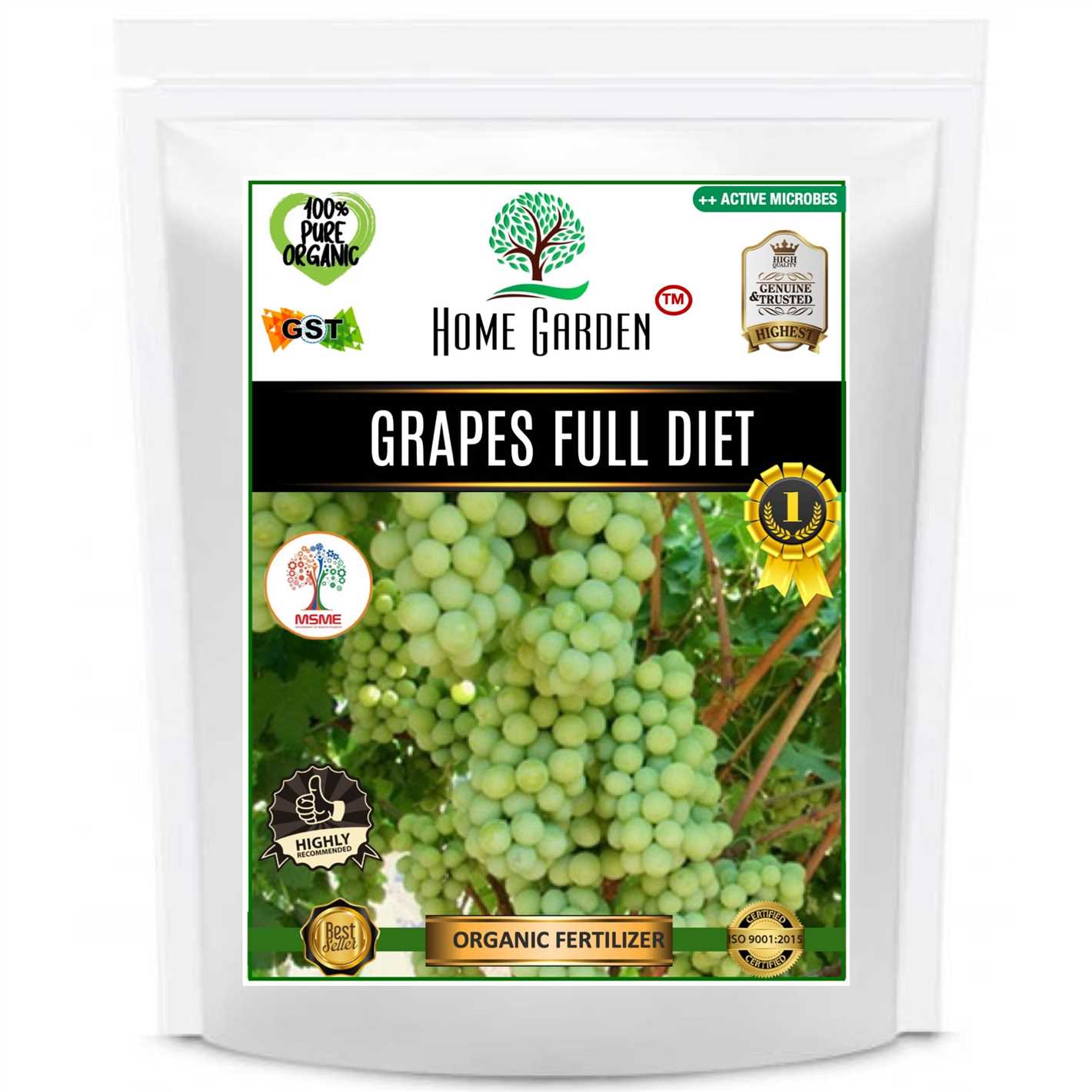
Bone meal is a natural fertiliser made from ground-up bones. It is high in phosphorus and calcium, which are vital for root development and overall plant health. Bone meal is often used as a fertiliser for flowering plants, vegetable gardens, and fruit trees.
4. Fish emulsion
Fish emulsion is a liquid fertiliser made from fish waste or whole fish. It is rich in nutrients like nitrogen, phosphorus, and potassium, as well as trace minerals. Fish emulsion is often used as a foliar spray or added to irrigation water to provide a quick nutrient boost to plants.
5. Blood meal
Blood meal is a natural fertiliser made from dried blood, usually from cattle or pigs. It is high in nitrogen, which promotes lush green growth in plants. Blood meal is often used as a slow-release fertiliser for nitrogen-loving plants such as leafy greens and corn.
6. Seaweed
Seaweed is a natural fertiliser that is rich in trace elements, minerals, and growth hormones. It can be used in various forms, such as liquid extracts, dried flakes, or powdered kelp. Seaweed fertiliser improves soil structure, enhances root development, and increases plant resistance to diseases and pests.
| Fertiliser | Nutrients | Application |
|---|---|---|
| Compost | Various nutrients | Mixed into soil or used as a top dressing |
| Manure | Nitrogen, phosphorus, potassium | Mixed into soil or used as a top dressing |
| Bone Meal | Phosphorus, calcium | Mixed into soil or applied to planting holes |
| Fish Emulsion | Nitrogen, phosphorus, potassium, trace minerals | Foliar spray or added to irrigation water |
| Blood Meal | Nitrogen | Mixed into soil or applied as a top dressing |
| Seaweed | Trace elements, minerals, growth hormones | Foliar spray or mixed into soil |
Best Natural Fertiliser for Seedlings
If you’re looking for a way to give your seedlings a boost without relying on chemical fertilisers, natural alternatives can be a great option. Here are some of the best natural fertilisers for seedlings:
1. Compost
Compost is one of the best natural fertilisers for seedlings. It is made from organic materials such as kitchen scraps, yard waste, and leaves, which are broken down into nutrient-rich soil amendments. Compost supplies a wide range of essential nutrients and improves soil structure, promoting healthy root development in seedlings.
2. Worm Castings
Worm castings, also known as vermicompost, are another excellent natural fertiliser for seedlings. They are the waste products of earthworms and are rich in beneficial microorganisms, nutrients, and plant growth hormones. Worm castings provide a slow-release source of nutrients to seedlings and help improve soil moisture retention.
3. Fish Emulsion
Fish emulsion is a liquid fertiliser made from fermented fish parts. It is a great natural fertiliser for seedlings due to its high nitrogen content. Nitrogen is crucial for promoting leafy growth in young plants. Fish emulsion also contains beneficial trace elements and can be easily absorbed by seedlings.
4. Seaweed Extract
Seaweed extract is derived from seaweed and is an excellent source of trace elements, growth-promoting hormones, and amino acids. It is available in liquid form and can be used as a foliar spray or applied directly to the soil. Seaweed extract enhances seedling growth, improves overall plant health, and increases resistance to stress.
5. GreenManure
Green manure refers to cover crops that are grown and then tilled into the soil before planting seedlings. Examples of green manure crops include legumes like clover or vetch. These plants help suppress weed growth, enrich the soil with organic matter, and increase nutrient availability for seedlings.
When using natural fertilisers for seedlings, it’s important to follow the instructions provided by the manufacturer. Additionally, it’s recommended to perform a soil test to ensure the appropriate nutrient balance for your specific seedlings.
Natural Fertiliser for Grapes
Grapes are a popular fruit that can be grown in a variety of climates. Whether you have a small backyard vineyard or just a couple of grapevines in your garden, using a natural fertiliser can help to promote healthy growth and enhance fruit production. Here are a few natural fertiliser options for your grapevines:
1. Compost
Compost is a rich source of nutrients and organic matter that can be used to nourish grapevines. It improves soil fertility, increases water retention, and provides essential nutrients such as nitrogen, phosphorus, and potassium. Apply compost around the base of the grapevines, avoiding direct contact with the vines to prevent rotting.
2. Manure
Well-aged animal manure, such as cow or horse manure, is another natural fertiliser option for grapevines. It is high in nitrogen and other essential nutrients that promote healthy growth. Apply a layer of manure around the base of the grapevines, taking care not to pile it up against the vines.
3. Organic Fertilisers
There are various organic fertilisers available specifically formulated for grapevines. These fertilisers usually contain a balanced mix of nutrients that are essential for grapevine growth, such as nitrogen, phosphorus, and potassium. Follow the manufacturer’s instructions for application rates and timings.
4. Cover Crops
Planting cover crops between the grapevines can provide additional nutrients for the soil. Legumes like clover or vetch are excellent choices as they fix nitrogen in the soil, which can be beneficial for grapevine growth. Once the cover crops have grown, they can be cut and left as a mulch to enrich the soil.
5. Fish Emulsion
Fish emulsion is a liquid fertiliser made from fish waste. It is a good source of nitrogen and other trace elements that promote healthy grapevine growth. Dilute the fish emulsion according to the manufacturer’s instructions and apply it to the soil around the grapevines.
6. Seaweed Extract
Seaweed extract is a natural fertiliser that contains a range of nutrients and growth-promoting substances. It helps improve plant health, enhance root development, and increase tolerance to environmental stresses. Dilute the seaweed extract according to the manufacturer’s instructions and apply it to the grapevines.
Remember to always follow the recommended application rates and timings for any natural fertilisers you use on your grapevines. Regular fertilisation, along with adequate water and sunlight, will help your grapevines grow strong and produce abundant, flavorful fruits.
Importance of Fertilising Grapevines
Grapevines, like any other plants, require certain nutrients to grow and produce healthy fruits. Fertilising grapevines is crucial for maintaining their overall health and productivity. Here are some reasons why fertilising grapevines is important:
1. Nutrient Deficiency Prevention
Fertilisers help provide grapevines with essential nutrients that are necessary for their growth and development. These nutrients, such as nitrogen, phosphorus, and potassium, play a vital role in the vine’s ability to produce flowers, fruits, and foliage. Without adequate fertilisation, grapevines may suffer from nutrient deficiencies, leading to stunted growth, low fruit quality, and decreased yield.
2. Enhanced Growth and Development
Fertilisers supply grapevines with the necessary nutrients to support their overall growth and development. By providing an extra boost to their nutrient intake, fertilisers encourage healthy root development, vigorous foliage growth, and strong root-to-shoot ratio. This leads to stronger vines, improved photosynthesis, and increased energy reserves, all of which contribute to better fruit production and vine health.
3. Increased Disease Resistance
A well-fertilised grapevine is more likely to have an enhanced immune system, making it better equipped to resist diseases and pests. Proper fertilisation can improve the overall health and resilience of grapevines, enabling them to defend against common grapevine diseases like powdery mildew, downy mildew, and grey mold. Additionally, a healthy vine is less susceptible to pest infestations, reducing the need for chemical interventions.
4. Consistent and Quality Fruit Production
Fertilising grapevines ensures a consistent and high-quality fruit production. Nutrient-rich soil and appropriate fertilisation practices help maintain the balance between vegetative growth and fruit production. Adequate nutrients enable the vine to produce an optimal number of clusters with high sugar content, good acidity levels, and desirable flavors. Regular fertilisation also promotes the development of healthy and disease-free fruit, resulting in better yields and improved grape quality.
5. Sustainable Vineyard Management
Incorporating fertilisation practices into vineyard management contributes to long-term sustainability. By replenishing nutrients in the soil, fertilisation helps maintain soil fertility and prevent depletion. This sustainable approach not only benefits the current vineyard yields but also ensures the health and productivity of grapevines for years to come.
In conclusion, fertilising grapevines is essential for their growth, development, disease resistance, and fruit production. By providing the necessary nutrients, fertilisers contribute to the overall health and sustainability of grapevines, leading to consistent and high-quality harvests.
Types of Natural Fertiliser for Grapes
Grapes are a popular fruit that can be grown in a variety of climates, and they require proper nutrition to thrive. Natural fertilisers can provide the necessary nutrients for grape plants, without the use of synthetic chemicals. Here are some types of natural fertilisers that are particularly beneficial for grapes:
1. Compost
Compost is a nutrient-rich soil amendment that is made from decomposed organic matter. It provides a wide range of essential nutrients, including nitrogen, phosphorus, and potassium. Adding compost to the soil around grape plants can improve soil structure, enhance water retention, and encourage beneficial microorganisms.
2. Manure
Well-rotted animal manure, such as cow or horse manure, can be an excellent natural fertiliser for grapevines. Manure is a good source of nitrogen, which is crucial for healthy plant growth. It also adds organic matter to the soil, improving its fertility and water-holding capacity.
3. Bone Meal
Bone meal is an organic fertiliser made from ground-up animal bones. It is a rich source of phosphorus, which is essential for flower and fruit production. Adding bone meal to the soil around grapevines can promote robust root development, improve flowering, and increase grape yields.
4. Fish Emulsion
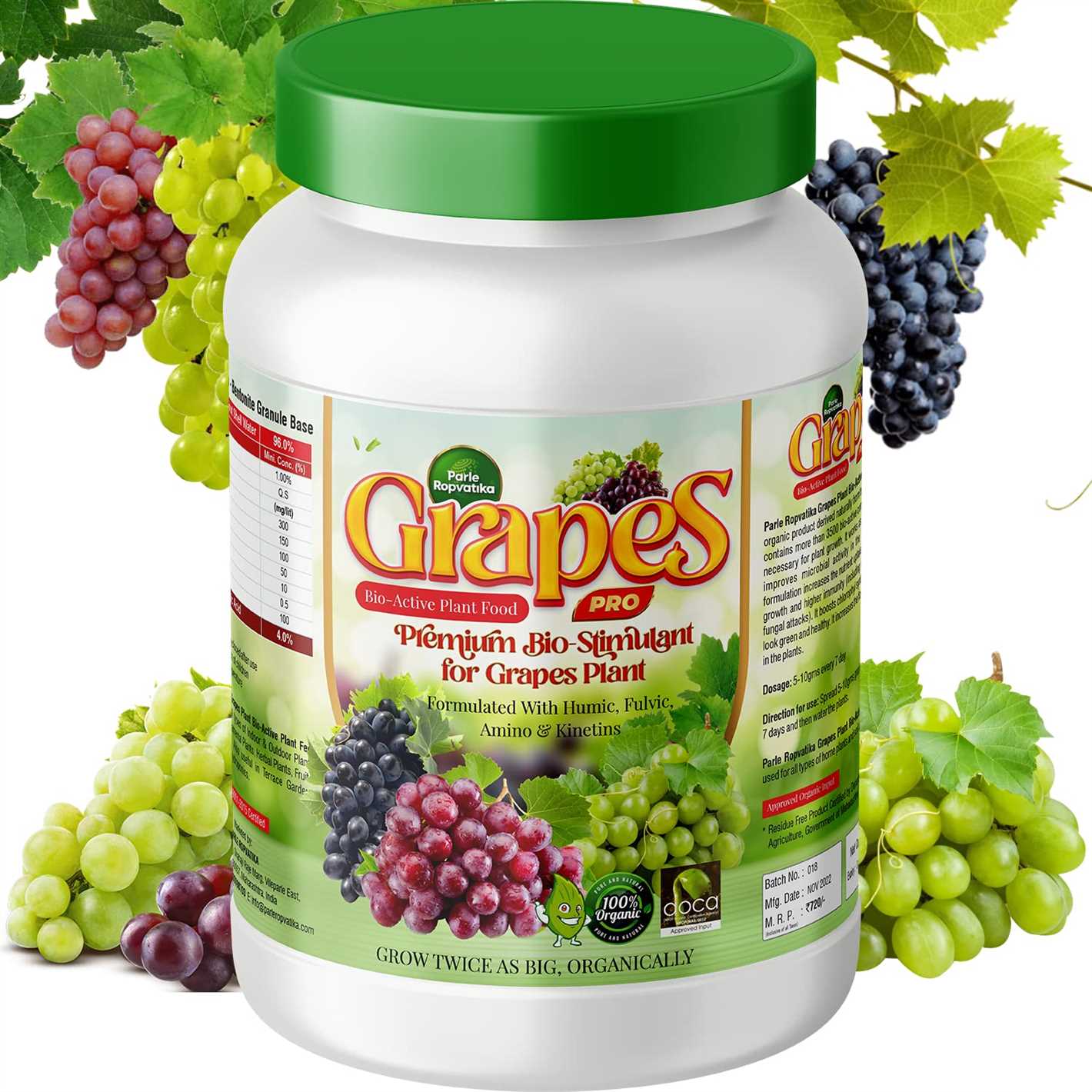
Fish emulsion is a liquid organic fertiliser that is made from fermented fish. It is a concentrated source of nutrients, particularly nitrogen and trace elements. Applying fish emulsion to grape plants can provide a quick boost of nutrients, stimulating healthy growth and improving overall plant health.
5. Natural Liquid Fertilisers
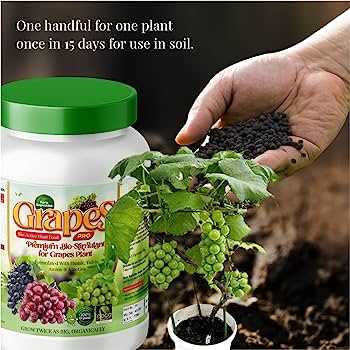
There are various natural liquid fertilisers available in the market that are specifically formulated for grapevines. These fertilisers typically contain a mix of organic nutrients, minerals, and beneficial bacteria. They can be easily applied by foliar spraying or through irrigation systems, ensuring that the plants receive a balanced supply of essential nutrients.
When using natural fertilisers for grapes, it is important to follow the recommended application rates and timing to avoid overfeeding or nutrient deficiencies. Additionally, it is always a good idea to conduct a soil test to assess the nutrient levels and pH of the soil before applying any fertilisers. This will help tailor the fertilisation program to the specific needs of the grape plants, ensuring optimal growth and fruit production.
Tips for Applying Natural Fertiliser to Grapevines
Grapevines require regular fertilisation to ensure healthy growth and a bountiful harvest. Using natural fertilisers is a great way to provide essential nutrients to your grapevines without relying on synthetic chemicals. Here are some tips for applying natural fertilisers to your grapevines:
1. Choose the right natural fertiliser
There are many natural fertilisers available, so it’s important to choose one that is suitable for grapevines. Look for a fertiliser that is rich in organic matter, such as compost or well-rotted manure. These fertilisers provide a wide range of nutrients that grapevines need to thrive.
2. Apply fertiliser in the spring
Grapevines benefit from a spring application of fertiliser to promote healthy growth and development. Apply the natural fertiliser around the base of the grapevines, being careful not to get it on the leaves or fruit. This will allow the roots to absorb the nutrients directly.
3. Follow recommended dosage
When applying natural fertiliser to grapevines, it’s important to follow the recommended dosage. Over-fertilisation can lead to excessive vegetative growth and reduced fruit production. Consult the packaging or consult a gardening expert for the appropriate amount to use.
4. Water thoroughly after application
Once the natural fertiliser has been applied, water the grapevines thoroughly to help the nutrients penetrate the soil and reach the roots. This can be done using a garden hose or by allowing rainwater to naturally irrigate the plants.
5. Apply mulch
Mulching around grapevines after fertilisation can help retain moisture and suppress weeds. Organic mulch, such as wood chips or straw, can also decompose over time, adding additional nutrients to the soil.
6. Monitor plant health
After applying natural fertiliser, keep a close eye on the health of your grapevines. Look for signs of over-fertilisation, such as excessive foliage growth or yellowing leaves. Adjust your fertilisation routine accordingly to ensure the grapevines receive the right amount of nutrients.
By following these tips, you can effectively apply natural fertiliser to your grapevines and promote healthy growth and abundant fruit production.
Natural Fertiliser for Indoor Plants
Indoor plants require proper care and nutrition to thrive and stay healthy. Using natural fertilisers is a great way to provide essential nutrients to your indoor plants without the use of harmful chemicals. Here are some natural fertilisers that you can use to nourish your indoor plants:
1. Compost
Compost is an excellent natural fertiliser for indoor plants. It is made from organic matter such as kitchen scraps, yard waste, and leaves. Compost is rich in nutrients and beneficial microorganisms that enhance the soil’s fertility. You can mix compost with potting soil or sprinkle it on top of the soil around the base of your indoor plants.
2. Organic Liquid Fertiliser
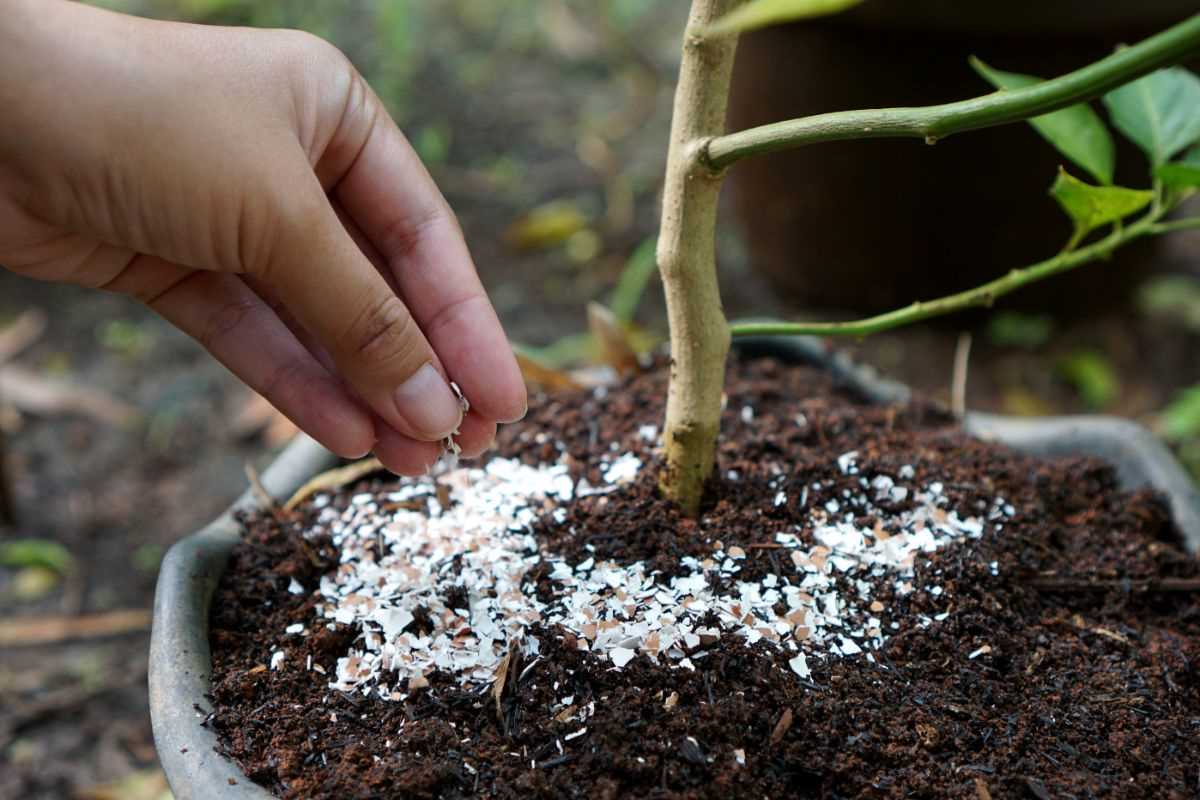
Organic liquid fertilisers are specially formulated to provide essential nutrients to indoor plants. They are made from natural sources such as seaweed, fish emulsion, and bone meal. These fertilisers are easy to apply and quickly absorbed by the plants. You can dilute the liquid fertiliser in water and use it to water your indoor plants once a month.
3. Epsom Salt
Epsom salt is a natural source of magnesium and sulfur, which are essential minerals for plant growth. You can dissolve Epsom salt in water and use it to water your indoor plants once every few months. This will help improve the nutrient uptake of your plants and promote healthy growth.
4. Banana Peels
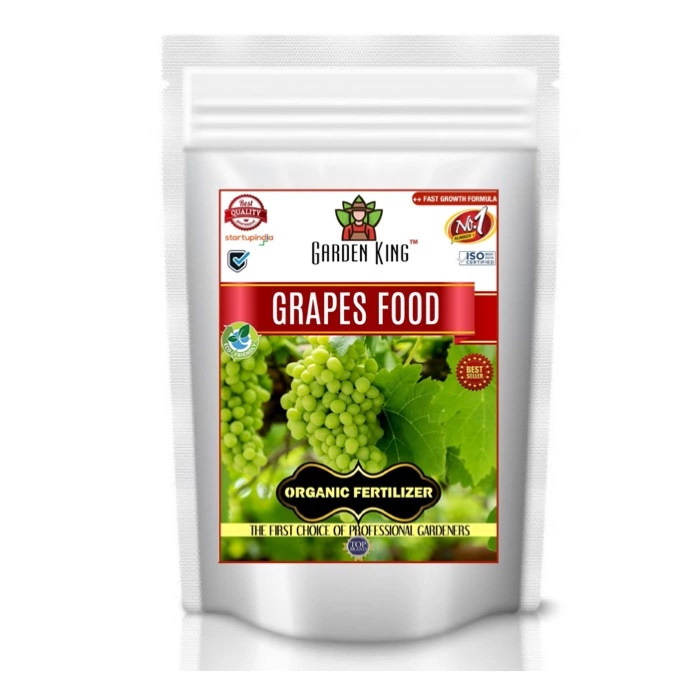
Banana peels are a great source of potassium and other nutrients that are beneficial for indoor plants. You can cut up banana peels into small pieces and bury them in the soil around the base of your plants. As the peels decompose, they will release nutrients into the soil, providing a slow-release fertiliser for your indoor plants.
5. Coffee Grounds
Used coffee grounds are rich in nitrogen, potassium, and other minerals that indoor plants need for healthy growth. You can sprinkle coffee grounds around the base of your plants or mix them with potting soil. However, be careful not to use too much coffee grounds as it can make the soil too acidic.
6. Green Tea
Green tea is not only beneficial for your health but also for your indoor plants. You can use green tea as a natural fertiliser by brewing a weak solution and using it to water your plants. The nutrients in green tea help promote healthy root development and improve the overall vitality of your indoor plants.
Using natural fertilisers is a sustainable and eco-friendly way to provide nutrients to your indoor plants. Experiment with these natural fertilisers and adjust their application according to the needs of your plants. Remember to always read the instructions and follow the recommended dosage for each type of natural fertiliser you use.
Benefits of Using Natural Fertiliser for Indoor Plants
Using natural fertiliser for indoor plants can provide several benefits for their growth and overall health. Here are some advantages of using natural fertilisers:
- Environmentally friendly: Natural fertilisers are made from organic materials such as animal manure, compost, and plant matter. They do not contain synthetic chemicals or harmful substances, making them safe for the environment.
- Nutrient-rich: Natural fertilisers contain essential nutrients that are beneficial for plant growth, including nitrogen, phosphorus, and potassium. These nutrients are released slowly and are readily absorbed by the plants, promoting healthy foliage and strong root development.
- Improves soil structure: Natural fertilisers help to improve the structure of the soil by increasing its ability to hold water and nutrients. This enhances the soil’s fertility and promotes better plant growth.
- Promotes biodiversity: Using natural fertilisers encourages the growth of beneficial microorganisms in the soil, such as earthworms and beneficial bacteria. These microorganisms help to break down organic matter and release nutrients that are essential for plant growth.
- Long-lasting effects: Natural fertilisers release nutrients slowly over time, providing a steady supply of nourishment to the plants. This reduces the risk of over-fertilisation and ensures that the plants receive a consistent and balanced supply of nutrients.
In conclusion, using natural fertilisers for indoor plants offers numerous benefits including environmental friendliness, nutrient enrichment, soil structure improvement, promotion of biodiversity, and long-lasting effects. It is a sustainable and effective way to support the growth and health of your indoor plants.
“Question-Answer”
What is natural fertiliser and why is it important for seedlings, grapes and indoor plants?
Natural fertiliser is a type of fertiliser derived from organic sources such as compost, animal manure, or plant matter. It is important for seedlings, grapes, and indoor plants because it provides essential nutrients that plants need for healthy growth, promotes soil fertility, and improves overall plant health.
How can I make natural fertiliser for my seedlings?
You can make natural fertiliser for your seedlings by composting kitchen scraps, such as fruit and vegetable peels, coffee grounds, and eggshells. Mix these organic materials with yard waste, like grass clippings and leaves, and allow it to decompose over time. The resulting compost can be used as a natural fertiliser for your seedlings.
What are the benefits of using natural fertiliser for grapes?
Using natural fertiliser for grapes has several benefits. It improves soil quality and fertility, providing essential nutrients for grape vines to thrive. Natural fertilisers also enhance the flavor and quality of grapes, promoting better yields. They are also environmentally friendly and do not contribute to water pollution or harm beneficial organisms in the soil.
Can I use natural fertiliser for indoor plants?
Yes, you can use natural fertiliser for indoor plants. It is a safe and effective way to provide nutrients to your indoor plants without the use of synthetic chemicals. Natural fertilisers help promote growth and overall plant health, making them a great option for indoor gardening.
How often should I apply natural fertiliser to my seedlings?
The frequency of applying natural fertiliser to seedlings depends on the specific needs of the plants and the type of natural fertiliser being used. Generally, it is recommended to apply a small amount of natural fertiliser once a month while the seedlings are actively growing. However, it is important to follow the instructions on the fertiliser packaging or consult a gardening expert for specific guidelines.
Can natural fertiliser help prevent indoor plants from wilting?
Yes, natural fertiliser can help prevent indoor plants from wilting. The nutrients provided by natural fertilisers promote healthy plant growth, strengthen the plant’s immune system, and improve water absorption capabilities. This helps the plants stay hydrated and reduces the chances of wilting.
